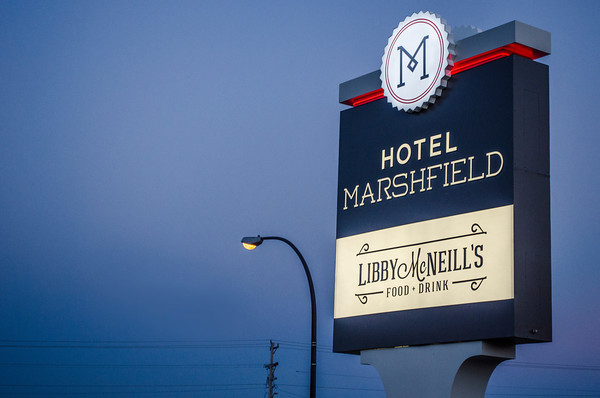Marshfield, January 1903: From humble beginnings

How a collection of 500 books grew into the Marshfield Public Library
By Kris Leonhardt
Featured Columnist
“Whatever the cost of our libraries, the price is cheap compared to that of an ignorant nation.” – Walter Cronkite
Following the fire of 1887, Marshfield focused on the growth and advancement of the new city emerging from the ashes and looked to expand the education of its inhabitants.
Spared from the fire’s wrath was a collection of over 500 books that were given to the city by John J. Marsh in appreciation for the city’s name. The titles had been housed above Elvis’ Drug Store, one of many locations the books would occupy prior to finding a permanent home.
Though Mrs. Elvis, Mrs. W.H. Upham, and several more of the city’s women would continuously work to introduce a free library to the city to provide an educational service, their efforts were met with disdain.
As many of the libraries in those days were provided for by a subscribership, city leaders could not see committing funds to the manning and stocking of a free library, even turning down the opportunity of a Carnegie Library.
It was not until 1901, upon the completion of the new city hall in Marshfield, that the book collection found a permanent home. The titles, now nearing 700 in total, were placed in the southern wing of the new city hall, a location that later became known as the Marshfield Free Library.
The library was then referred to as the “poor man’s university,” a reference to those that could not afford an education from an institute of higher learning but took it upon themselves to seek out knowledge.
As the calendars turned to January of 1903, the library was growing by leaps and bounds. With a couple thousand books at its disposal, the library was providing a multitude of information to its residents with a large number of the works in foreign languages, particularly German.
Librarian Miss Ellinwood, who promoted an efficient and organized facility, had concentrated on building up the reference department in the library, which had now become a leader among libraries in the state.
The library had become an educational and recreational center of the city.
On one particular Saturday, Miss Ellinwood, following an assessment of the day, realized that a great milestone had been reached: 133 books had been issued by the Marshfield Free Library that day. This was a large accomplishment for any library of that size.
By this time the library had 1,350 borrowers, which included residents of the city and the surrounding area, but facilitators always worked to reach higher and higher numbers.
At that same time, local businessman W.D. Connor presented the facility with a state-of-the-art Remington typewriter, and it would become a great convenience to library staff. The typewriter came following a $2,500 endowment by Connor, which would allow the library to introduce additional oak shelving to increase space.
The library would continue to grow and expand in its city hall location until 1960 when a new library was built nearby on the north side of East Second Street. From there the library would continue to flex and improve and would later serve several counties as the Marshfield Public Library.
Leave a reply
You must be logged in to post a comment.






